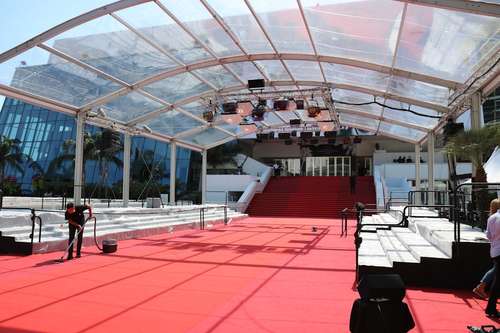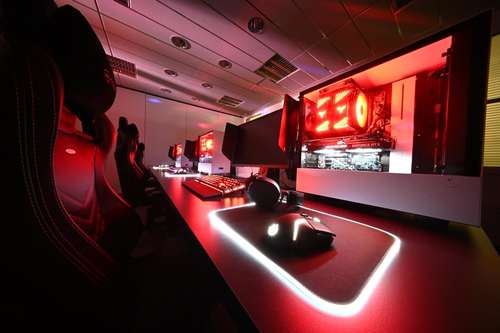Promising Minecraft-like Hytale Cancelled After Ten Years in Development
It’s a tough pill to swallow for fans of sandbox and open-world games who eagerly anticipated the next big breakthrough from Hypixel Studios. After ten long years of development and sky-high expectations, Hytale – the Minecraft-like, voxel-based, creative sandbox – has been cancelled. The journey from an ambitious idea announced in 2015 to its unfortunate cancellation is a stark reminder of the challenges facing game developers. For many in the gaming community, this news feels like the end of an era for indie game innovation and adventure game dreams.
The announcement, which has sent ripples through gaming news outlets, is a sobering moment. We’ve all invested time imagining new virtual worlds full of possibilities, where creativity meets open-world exploration. But even the most promising projects can hit a wall when technical hurdles, funding issues, and design complexities accumulate over time. This is exactly what happened with Hytale – a promising game that sadly could not overcome the obstacles on its long development journey.
The Ambitious Vision of Hytale
The story of Hytale began with great fanfare and excitement. The game was billed as a Minecraft-like adventure that would combine the best elements of classic sandbox games with innovative design aspects to create a multiplayer and open-world game experience unlike any other.
At its core, Hytale was meant to be more than just a voxel-based game. It was framed as a creative sandbox and indie game that would offer players a dynamic world to explore, build, and share. Its promise lay in unparalleled customization, extensive mod support, and a vibrant community that could collaborate and compete in virtual worlds. Many gamers hoped that Hytale might eventually become a benchmark for game design in the realm of PC gaming and adventure games.
Developers at Hypixel Studios pushed the boundaries of game development and design for this ambitious project. They envisioned a place where every player could be a creator, building their own adventures with tools that brought almost limitless creative potential. The anticipation around Hytale was akin to waiting for a masterpiece, where each brick was to be laid over a decade.
However, the grand promise of Hytale came with equally grand challenges. Is it possible to sustain a project over ten years in the ever-evolving gaming industry? The answer, sadly, can be more complex than we’d like to believe.
Challenges in the Game Development Cycle
It’s not uncommon for creative projects to face setbacks, but sustaining a game project for ten years is a monumental task. The Hytale development cycle has been a roller coaster ride filled with highs and lows, where every twist in the design process posed its own unique challenge.
The game development cycle involves countless revisions in game design, technical testing, and balancing the expectations of an enthusiastic gaming community. For Hytale, these challenges were magnified by its ambitious scope. The project aimed to integrate multiplayer functionalities, a rich open-world environment, and extensive role-playing elements, which demanded not only creative vision but also rigorous testing, iterative feedback, and massive financial backing.
Rhetorically speaking, if crafting the world of Hytale was a puzzle, developers found themselves missing too many of its pieces over the years. The cancellation reveals an industry reality: even with robust backing and passionate developers, sometimes the hurdles in achieving a flawless virtual world are simply too high.
The long development time meant that the original vision often had to be reimagined, reengineered, and at times completely overhauled. This constant shift in design priorities and the inevitable changes in team dynamics contributed to what many are now calling an inevitable collapse of the project. Fans who once celebrated incremental updates soon became disillusioned by the constant promises of innovation that never quite materialized.
Financial Hurdles and Industry Realities
Few projects enjoy endless financial resources, and Hytale was no exception. Even with the support from major players like Riot Games, the financial runway was shorter than necessary to push a project of this magnitude to completion. The cancellation is a clear indicator of how crucial financial stability is in overcoming technical and creative roadblocks in game development.
The funding issues serve as a cautionary tale for the game industry. When a project takes a decade to reach fruition, there’s a very real risk that newer technologies and competitor ideas will outpace even the most innovative developments. Despite the initial high hopes and a promising launch, financial challenges ultimately trumped ambition.
Developers and fans alike are left pondering the fate of similar ambitious projects in the future. Hytale’s cancellation is not just a story about one game failing; it’s a reflection of the volatile nature of game development, where intuitive visions often collide with harsh market realities and shifting priorities. The lesson here for every indie game developer is clear: balancing innovation with pragmatic budgeting is as vital as any groundbreaking idea.
Some in the industry relate this situation to trying to build a bridge over a rapidly flowing river. No matter how well-crafted the blueprints, if the resources are insufficient, the result might be a half-completed structure that fails to serve its purpose. This sentiment rings especially true in our digital age, where cutting-edge game design is sometimes sacrificed on the altar of financial constraints.
Community Impact and the Road Ahead
The community reaction to Hytale’s cancellation has been filled with disappointment and a sense of loss. For many long-time fans of sandbox and multiplayer games, the news signifies the end of what could have been a revolutionary entry in the world of creative sandbox gaming.
For hobbyists, developers, and enthusiasts who view games as more than just entertainment – as virtual canvases for creativity and collaboration – the demise of Hytale is a bitter reminder of the risks involved in any innovative endeavor. It’s hard not to wonder what might have been achieved if the project had continued to fruition.
While the cancellation of Hytale marks a setback, it also opens the door for newer projects to learn from these challenges. The gaming industry is known for its rapid evolution, and every cancelled project brings important lessons. In the end, the legacy of Hytale won't be defined solely by its abrupt cancellation, but by the inspiration it provided to countless gamers and future game developers.
The passionate discussions on forums and social media underline that this cancellation isn’t just about a single game—it’s about a shift in what the gaming community expects from ambitious, long-term projects. With fresh talent emerging every day, there’s hope that the spirit of Hytale’s innovative design will inspire future developers to create the next big hit in sandbox and open-world adventure gaming.
In a way, the journey of Hytale is reminiscent of many creative endeavors: a mix of highs and lows, promise and pitfalls. Even as we bid farewell to this chapter of video game news, the broader evolution of game design continues unabated, carrying forward insightful lessons for the future of PC gaming and virtual worlds.
Reflections on a Decade of Dreams
Looking back, Hytale’s story over ten years of development is a bittersweet narrative filled with both ambition and harsh reality. For those who followed the project's progress, the decision to cancel is a reminder that passion alone can sometimes fall short in the face of practical challenges.
This situation brings to mind how innovation in any industry often has to navigate turbulent waters. Even with the best intentions and creative vision, a promising game can face unexpected hurdles that tip the scales toward cancellation. It’s a lesson in resilience for the game development cycle that not all visionary projects survive their journey from concept to reality.
The tale of Hytale is now etched into gaming history as a case study of both creative brilliance and the sobering challenges inherent in game development. While its cancellation may bring temporary disappointment, it leaves behind invaluable insights that will resonate with game developers and creative minds in the many virtual worlds still to be built.
For the gaming community, the end of Hytale is also the beginning of a conversation on balance—how excitement and innovation must be paired with realism and steady support to endure the modern era of video game development.
In summary, the cancellation of this Minecraft-like, sandbox game after ten years of tireless effort marks a notable moment in gaming history. Though it represents a setback, it also serves as an important reminder that every ambitious project, no matter how promising, must navigate a maze of financial, technical, and creative challenges. This story will keep inspiring future game developers, urging them to build bridges over turbulent waters, even if not every journey reaches the intended destination.




